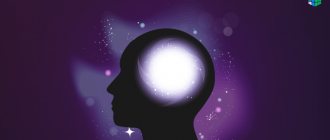The Czech writer and journalist Laub Gabriel, known for his aphorisms, said about someone: “In his system of thinking, the system clearly prevailed over thinking.” Despite the obvious tautology, it is this phrase that most accurately describes what is happening in the head of a human analyst. He sorts everything out, catches the smallest details, gets to the bottom of all phenomena, and looks for cause-and-effect relationships. He will never buy into the apparent simplicity of the current situation - even in it he will look for a catch.
Such people always answer a question with ten counter questions. They click logic puzzles one or two times. Solve problem situations using non-standard methods. They become lawyers, detectives, scientists, journalists, and IT specialists. Although they are considered strange, they are professionals in their field. And all this is due to the fact that they have analytical thinking, which allows them to look at the world around them in an original way - not like everyone else.
What is analytical thinking
This is a whole range of specific abilities:
- highlight significant details in an object that are not noticeable at first glance;
- reason logically;
- find hidden cause-and-effect relationships;
- demonstrate practical intelligence;
- subject an object or situation to comprehensive research;
- weigh the pros and cons.
It is based on 2 basic processes:
- creative (often based on intuition) - searching for information (those very details) in an unusual way;
- formal (based on the laws of mathematics and physics) - analysis and synthesis of the data found, conclusions.
In psychology, this is one of the types of thinking along with pragmatic, synthetic, realistic and idealistic. It should not be confused with logical, which draws conclusions based on comparison rather than cause-and-effect relationships.
The most striking examples of the manifestation or non-display of analytical thinking are the reaction to the problem about people in the chimney and the corners of the table.
Example 1
Problem: two people climbed out of a chimney. One got dirty, the other didn't. Who will go wash?
The non-analytical person's answer: the one who got dirty.
Possible answers for a person with an analytical mind:
- A clean person will look at the one who is dirty, think that he is also dirty, and go to wash himself.
- The dirty one, after the clean one goes to wash, will also follow him.
- And in general, how did two people end up in the chimney together and why did one of them get dirty and the other not?
Example 2
Question: How many corners will the table have if one of them is sawed off?
The answer of a person who does not have analytical thinking: 3 (wrong) or 5 (correct).
A person with an analytical mind will begin to ask counter questions in order to answer as accurately as possible:
- Is the table traditionally rectangular, or round, or triangular?
- How exactly the table was cut: if it’s close to the edge, then you’ll end up with 5 corners; and if diagonally - 3.
- Who is sawing off the corner of the table and why?
If we take examples from fiction and films, the most striking analytical heroes are the world-famous detective Sherlock Holmes from the series of stories by Arthur Conan Doyle and the operative from Petrovka Nastya Kamenskaya from the detective stories of Alexandra Marinina and the TV series “Kamenskaya”.
Games
The best way to improve analytical thinking in primary schoolchildren is through various games. They help you develop while having fun. If a child does not want to engage in any type of activity, or he simply does not like a certain game, then there is no need to force him, because in this case there will be no benefit.
What games will be effective:
- Quests. You can come up with a variety of quest options, but for a small child you should give preference to the simplest ones. For example, draw a map of the yard for him, according to which he will have to find treasures hidden by his parents.
- Puzzles. Finding the right elements and gradually assembling the big picture involves not only thinking, but also a person's attention. Schoolchildren should choose images that are not too large, with no more than 500 details.
- Board games. You can improve your analytical skills only in those board games where all participants are required to think about their decisions or calculate future steps. This option is perfect for the whole family.
Game-based development is very effective, which is why it is practiced by many parents. You just need to choose the right games for your child.
Benefit
Psychologists and teachers recommend developing an analytical mindset from childhood, as it makes life easier and allows you to solve not only complex mathematical, but also pressing, topical problems:
- see the main and the secondary, focusing on the first;
- appreciate the advantages and not lose sight of the disadvantages;
- identify all available opportunities and understand where their limitations begin;
- analyze based on experience and new information;
- draw your own conclusions and conclusions;
- disagree with the majority opinion;
- make decisions independently;
- skillfully use search engines to identify the necessary information;
- detailed planning of your activities;
- set realistic goals.
In childhood, a penchant for analytical thinking helps a child stand out from other children with his non-standard approach to solving any problems. Mathematics, physics, chemistry, and history are usually easy for him. He studies well and has a high IQ. From a psychological point of view, he is absolutely non-conflict, because he sees all the disadvantages of quarrels and tries to resolve them diplomatically.
With age, such people choose from thousands of professions the one that will help them reach their maximum potential. They do not have problems with admission, because they first study statistics on different educational institutions and meticulously calculate which of them have a chance of getting into.
Accordingly, they are successful in their professional activities and only move up the career ladder, because they know how to set realistic goals and consistently achieve them.
Why develop?
How to develop analytical thinking and why? This question worries both pupils, students and adults. While we are learning, analytical competence is necessary for better understanding, subsequent memorization and reproduction of information; When they start working, young people are often faced with employer demands that they have analytical skills. And this is not a whim - employees who have developed this competence tend to make informed decisions faster, make plans and forecasts, analyze past experience - which ultimately affects the company’s efficiency. But even if you are not a student, a student or an employee, this type of thinking is worth developing in order to analyze your life, successes and failures, and plan the future.
How to develop?
Certain exercises will help develop an analytical type of thinking:
- In educational institutions, you need to solve problems as much as possible and read books on mathematics, physics and other natural sciences.
- At least once a week, do exercises to warm up your brain: this includes crosswords, charades, and puzzles. You can use special books containing such exercises, for example: Oleg Kitynsky “Crosswords, scanwords, puzzles, charades, riddles, puzzles”, Gary Gruber “170 of the world’s most difficult puzzles. Tasks, puzzles and tricky questions for the mind”, “The Big Book of Puzzles, Riddles, Rebuses” will be interesting for children.
- The best exercises that contain tasks that require analytical activity are well-known games for adults and children: chess and mahjong.
- Tasks for solving various computer quests and strategies can replace the exercises listed above for lazy people.
- Analytical competence develops if everyday problems and tasks are solved in a certain way: for example, news and events in the world should be perceived from a critical point of view - do not stop at one version, analyze the facts, draw your own conclusions, look for cause-and-effect relationships. Make plans, calculate steps, work out different options for action.
- Read more - even fiction books provide a lot of food for the mind - look at the works of Agatha Christie, Gardner, Perelman! The detective and fantasy genres help activate logical and analytical thinking.
People who have developed this type of thinking from birth unconsciously love games, books, life situations - all those activities where logic and analysis are required. Those inclined to a humanitarian style of thinking, on the contrary, feel uncomfortable when life requires them to make logical conclusions and systematize. At the same time, most humanities students understand how valuable analytical and logical competence is and strive to develop it.
Don't forget that analytical thinking makes life much easier and more interesting. To analyze means to make the most of it.
Editorial: How to get out of depression after breaking up with your loved one
Recommendations for every day
Psychology has developed exercises through which analytical competence is developed and which help systematize our lives and achieve success in various areas. Their tasks are a way to achieve their own effectiveness and a method of developing analytical abilities.
- Come up with a problem or situation that is not difficult for you and set a goal to solve it in the simplest, fastest and most effective way.
- Think about how many possible solutions there are. Determine the ones that are closest to you.
- Ask a lot of questions about the situation: its origins, the reaction of others, your feeling about it, prospects, what will happen if the problem is not resolved in your favor, what benefits will you receive if it is resolved positively, is it worth developing, etc.
- Having received answers to all questions, make a decision.
- Analyze it carefully.
This exercise should become a habit over time - if time permits, do it every day, at least once a week.
Train yourself to analyze your actions, the actions of others, and events in the world.
When you read, put yourself in the shoes of the characters, think about why they did what they did and what you would do. Over time, you will notice that the tendency to analyze is firmly entrenched in your mind, that it has become easier to work and study, and that you better understand why certain events happened in your life.
Rate this article:
- 4.4
Total votes: 163
Test
There is a psychological test for analytical thinking that allows you to determine its absence or presence and degree of severity.
Age: over 15 years old.
Time: 7 minutes.
Tools:
- form with number series;
- answer sheet;
- interpretation;
- stopwatch;
- pen;
- draft form.
Exercise:
- Determine the pattern of compiling each of the 15 rows of numbers.
- Based on this pattern, continue the rows by entering 2 more numbers into each.
A test form with a task in which you should fill in the missing numbers:
Strictly after 7 minutes the command “stop” is given.
Answer form based on which the results are analyzed:
Interpretation:
- 0 correct answers - lack of analytical thinking;
- 1-5 - low level;
- 6-7 - unsatisfactory;
- 8-10 - satisfactory;
- 11-13 - good;
- 14-15 is excellent.
If the test shows a lack of an analytical mindset or a low level, then you need to try to develop it.
How to develop
Psychologists cannot accurately answer the question of whether analytical thinking is inherited. There are no research data, so only assumptions are made. Without a doubt, parents with such a mentality will pass on their abilities to their child. But he will only have an inclination that he will have to work on from childhood.
What is certain is that the development of analytical thinking makes it possible to strengthen innate abilities, make them brighter, and direct them in the right (practical) direction.
In childhood
To successfully develop analytical thinking in a child, you should know the main stages of children's psychophysical development.
- 1.5 years
Visual and effective thinking is formed. The child learns such an important mental operation as generalization. He saw a bottle of milk - now they will feed him. Mom said the word “walk” - you need to get dressed. It is important for parents not to miss this moment and help their child, expanding his understanding of the world around him. At this stage, you need to instill as many traditions as possible and develop a daily routine. If today they read a fairy tale before going to bed, tomorrow they wash themselves in the bath, the day after tomorrow they turn on cartoons, problems with falling asleep will begin, because there will be no single algorithm of action - there will be nothing to generalize.
- 4 years
Visual-figurative thinking begins to form. The child absorbs most of the information visually. At this stage it’s easier for him. Ask him what a cloud is. He will point his finger at the sky or simply draw, but will not explain it in words. It is important for parents not to miss this moment and begin to train their baby’s imagination and visual memory. Subsequently, they will become a good basis for the development of analytical thinking. What to do? Do isotherapy, read books with illustrations, compose fairy tales based on pictures, observe the surrounding nature, notice details.
- 7 years
Verbal and logical thinking is formed. A significant leap in the psychophysical development of the child. Firstly, he learns to think sensibly, logically, reason, and compare. Performs simple analysis and synthesis operations. Draws conclusions. Secondly, he needs to formalize his mental activity verbally. He expands his vocabulary, selects words, constructs sentences, and creates coherent texts. All this is practiced at school. Parents only need to make sure that the little student conscientiously completes his homework. Also at this stage, it is useful to solve logic problems with your child, play strategy games, and go through quests. And the main thing is to actively discuss what is happening and the results.
With age, a person develops a verbal-analytical style of thinking - this is the same as the verbal-logical one, but more refined.
How to develop as an adult
Analytical thinking can be developed at any age using the following universal methods:
- Solve problems: mathematical, physical, logical.
- Solve crosswords, solve charades and puzzles, solve riddles and puzzles, collect puzzles.
- Play logic and educational games, strategies (board games: Millionaire, Monopoly; online games: Scrabble, Mahjong).
- Complete quests.
- Watch the news in order to analyze them comprehensively and find your own ways to solve problems that are relevant to society.
- Read science fiction and detective stories: Agatha Christie, Earl Gardner, Robert Heinlein.
- Study systems of codes and ciphers.
Also pay attention to neurolinguistic programming and neurobics. To develop an analytical mindset, it is useful for adults to perform special exercises daily.
Simulation 1
Create unusual situations for yourself every day that require setting a specific goal and developing a detailed plan to achieve it. For example, imagine that you need to get to the Moon or establish a settlement on Mars. If such fantastic prospects do not tempt you, you can think about more realistic tasks: how to become the owner of a car dealership, how to resolve the conflict in the Middle East, how to raise a child prodigy.
Once the modeling topic is chosen, formulate a specific goal in accordance with it and imagine how you will achieve it step by step. The main thing is not to miss a single detail. Need to fly to another planet? Think about what transport you will choose, where you will get it, who you will buy the ticket from, what to expect on your trip, etc.
When performing this exercise, it is important to stop in time. Spend no more than 15 minutes a day on it. One of the hallmarks of the analytical mind is to clearly separate the wheat from the chaff. That is, here is my imagination, with its help I train my thinking. And this is real life, in which every task is about survival. And you need to know how not to mix them.
Simulation 2
An exercise similar to the previous one, but it has a more practical meaning. It teaches you to apply analytical thinking in reality. There is no need to invent a problem situation. Perhaps she is already present in your life. For example, an unfavorable attitude from a boss. Or a 15-year mortgage that eats up a significant portion of your income. You are allowed to borrow the life difficulty of someone you know (what should you do: send your sick elderly grandmother to a boarding house or quit your job and take care of her yourself?). The main thing is that the circumstances are real.
State a problematic issue that needs to be solved. Gather as much information as possible about this situation. Look at it from all sides. Find the bad and the good. Start developing a strategic plan to solve the problem. And in several versions. People with analytical thinking always have backup ideas in case one of the versions turns out to be untenable.
Food for the brain
As you develop analytical thinking, it is important to pay attention to nutrition. There is food for the brain, which helps the functioning of the main organ of the body and stimulates its work. Moreover, mental work always requires a lot of energy expenditure, and it is important to replenish these costs correctly. The brain needs a lot of glucose. Other foods that improve brain function include:
- different types of nuts;
- chocolate, but only bitter;
- dried fruits;
- berries (blueberries, cranberries);
- lemon;
- beet;
- spinach;
- fish from the salmon family;
- White cabbage.
In addition, for the normal functioning of the body, including the brain, minerals and vitamins are required. First of all, we need: boron, calcium, magnesium, zinc, iron. It is important to monitor your diet and maintain balance. This will help the brain work properly and perceive information. Replace sugar with complete carbohydrates, eat more protein, and as little fat as possible.








